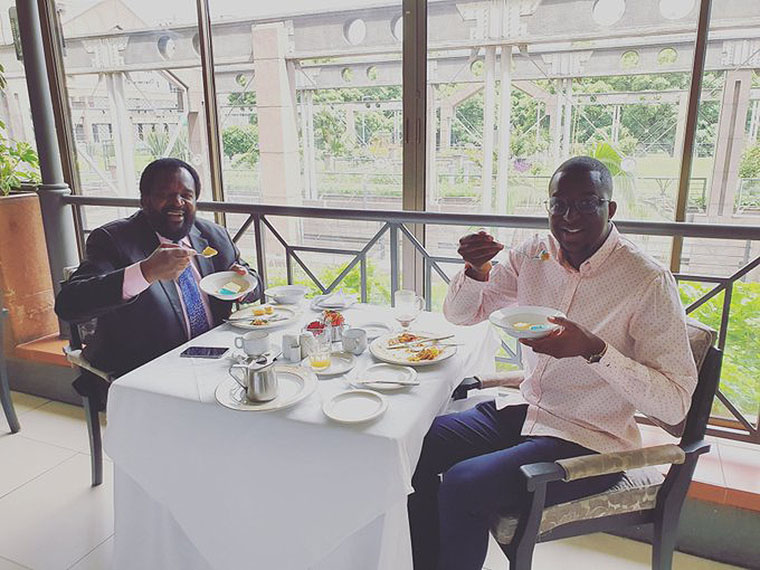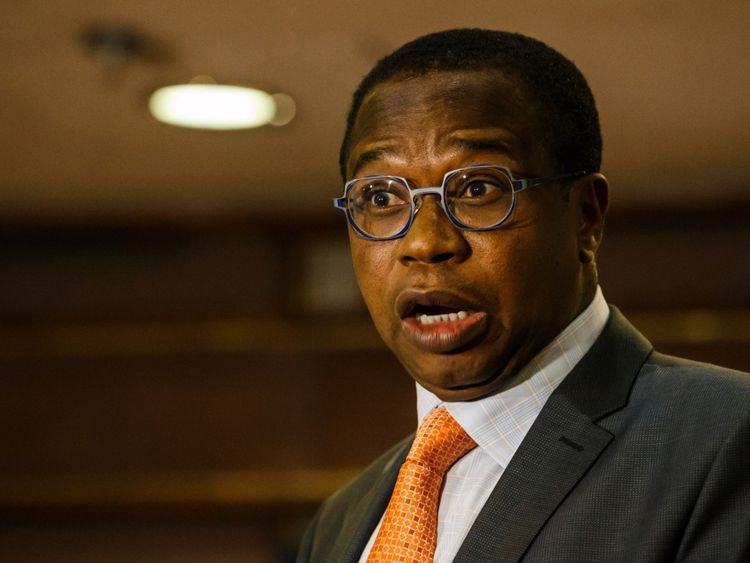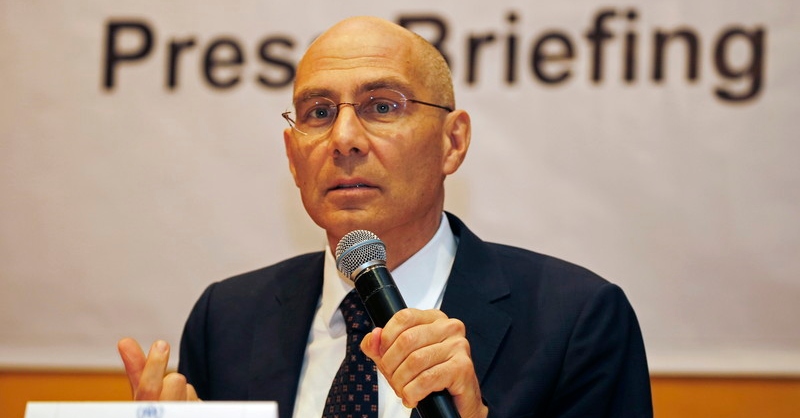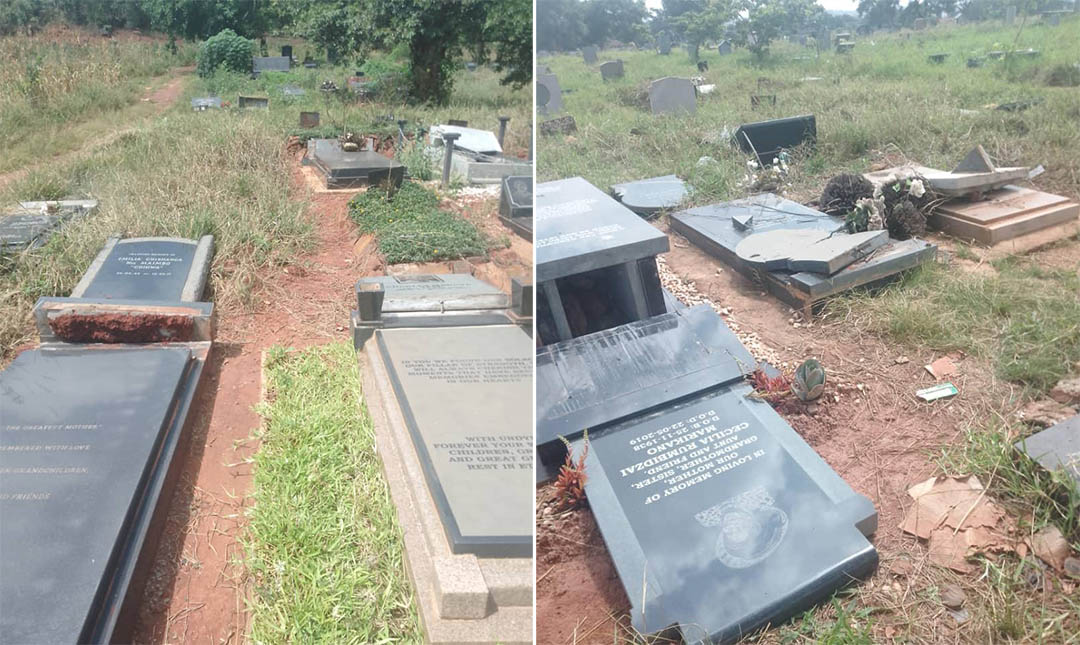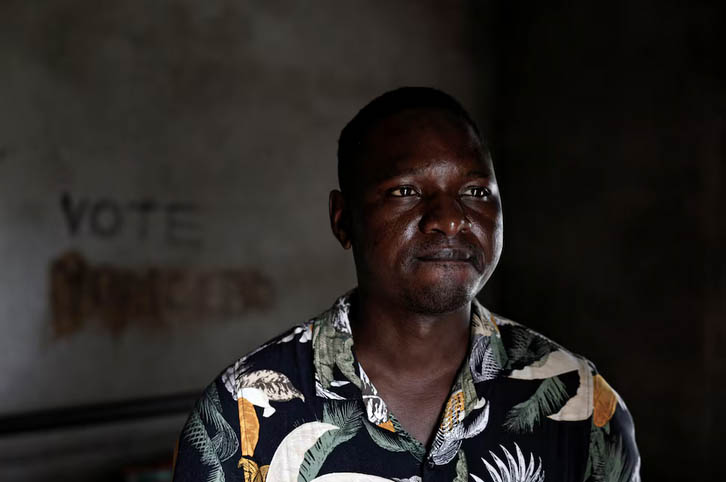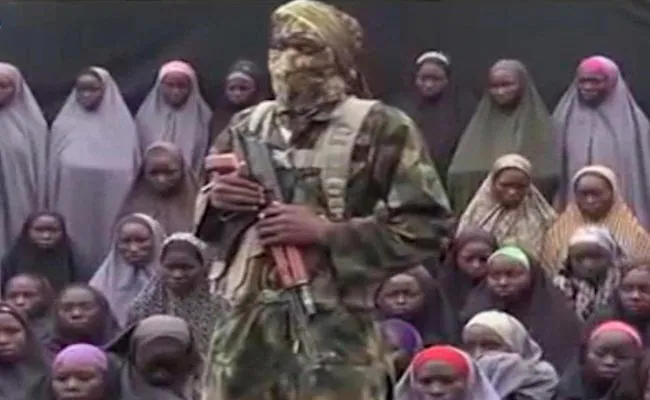HARARE – ‘If you go to Wilkins Hospital, you will die.’
That is the chilling warning given to Zimbabweans by the family of the country’s first coronavirus death.
Wilkins Hospital, the main infectious diseases hospital in Harare, was designated by the government to take in coronavirus patients.
But the facility had no water, no ventilators and not even a power socket in the room where journalist Zororo Makamba spent his harrowing final hours before his death at around 11.30AM on Monday.
The 30-year-old former ZiFM presenter’s brother Tawanda, speaking just hours after his brother’s death, said health minister Obadiah Moyo had repeatedly lied to them, and when they tried to get him transferred to a private hospital they were blocked from doing so.
Promises of help by President Emmerson Mnangagwa and his wife, Auxillia, turned into nothing.
“I want people to know that the government is lying,” Tawanda told The Daily News from outside the hospital. “Right now, they don’t even have water at Wilkins. So if you come here to be treated for coronavirus, there is absolutely no treatment you will get. You will die.”
Zororo, the son of Telecel founder James Makamba, travelled to New York on February 29, returning March 9.
Tawanda said he developed flu-like symptoms on March 12, but his condition was initially misdiagnosed. The doctor told him “he had a cough and a flu because in New York it’s cold, and here it’s hot,” Tawanda said.
Zororo, having returned from a high-risk country, should have been in 21-day self-isolation at home, but he broke the curfew repeatedly, exposing the government’s lack of enforcement procedures. He is known to have met officials at the finance ministry, the information ministry, bank staff at BancABC and journalism students from the Midlands State University. He also attended a gym and went to two Harare nightclubs.
Tawanda said when Zororo’s condition got progressively worse, he returned to his doctor on March 19, and was referred to Wilkins where specimens were taken shortly after 10AM. He was promised the results would be ready in six hours. But that was to be the beginning of a traumatic few days for the family, Tawanda said.
“After six hours, there were no results and when his general practitioner called to find out why, Wilkins Hospital said they were waiting for samples from provincial hospitals to run them all at once. Zororo’s condition was deteriorating. After some time, they then decided to run the test and in the meantime we took him home as he needed oxygen,” Tawanda said.
“His GPA phoned around and an ambulance came home to deliver the oxygen and then we got the positive results for coronavirus at about 2:00AM the following day. They told us that now that they had confirmed he had the virus, he had to be taken to Wilkins for treatment.
“We then inquired if we could bring him immediately and we were told that the hospital was not ready to receive coronavirus patients. So in the morning (March 20), we waited and waited and they were still not ready to admit him. He ended up being admitted after 10AM.
“His doctor made it clear earlier on that he had to be on a ventilator because he could not breathe. However, when we got at Wilkins there was no ventilator, no medication and even the oxygen would run out and they had to get it from the City of Harare.”
The family finally found a portable ventilator, which they delivered to the hospital on Sunday at 2PM.
“When we got here, because the portable ventilator had an American plug, they told us to get an adapter because they only had round sockets at the hospital. I then rushed to buy an adapter and came back, but they never used it. When I asked why, they said they had no sockets in his room,” recalled Tawanda.
The hospital had more bad news for the family – vital medicines needed to help Zororo breathe were not available. In fact the hospital told the family to source the medication in South Africa because it was not available locally. This was not true, Tawanda said, because they found the meds at a local pharmacy but only hours before Zororo’s death, after having already placed an order in South Africa.
“So they didn’t have medication and ventilators. We brought them a ventilator and they didn’t have sockets in his room. I told them that I had an extension cord and pleaded with them to use the cord, but they refused. They forced us to come here, but failed to deliver on their promise,” he said.
Health minister Obadiah Moyo said Monday that Zororo had “other concurrent serious medical conditions which made him vulnerable.” One of those conditions, Tawanda said, was a tumour removed from under his lung last November, for which he had been given an 18-month recovery period.
Faced with the conditions at Wilkins, the family said it reached out first to health minister Moyo to have Zororo transferred to Health Point “and he refused”, according to Tawanda.
“He promised us all sorts of things that this morning (Monday) there would definitely be a ventilator and equipment, but nothing materialised. If you go inside there, you will see that they are not prepared to handle cases this side,” said Tawanda.
“The minister at some point also suggested that we could take him to Trauma Centre in Borrowdale. When it was now time for us to go there, they refused us to go there. Instead, they got the owner of Trauma Centre to call me and he told me that he could come and set up an ICU at Wilkins for Zororo, complete with a ventilator and monitors, but he said that we had to pay US$120,000 for the equipment.
“He added that once Zororo finishes using the equipment and recovers, we had to donate the equipment to Wilkins Hospital. So basically, the hospital wanted us to buy the equipment for them. We don’t have US$120,000 and it is not our responsibility to buy equipment for the government.”
Desperate, the family used its political connections and got an audience with President Emmerson Mnangagwa and his wife, Auxillia.
Said Tawanda: “They promised us that Zororo could be transferred to Beatrice Road Infectious Diseases Hospital and that there was a room for him. Nothing came out of this. We even appealed to them saying that if they have failed, then they should allow us to take him home and treat him ourselves because really what he needed was oxygen.
“On top of that, remember this is a critical patient, nurses would only visit him after two hours because they were afraid of handling his situation. We had to phone from home, calling the nurse station to tell them that Zororo was in distress and that his oxygen was finished because they were not going to check on him.
“It even got to a point where they were telling us that we are bothering them, but Zororo was struggling in there. My mother and Zororo’s fiancé have been parked out here for the past two days, and they wouldn’t allow us to come in.
“The minister lied to us on many occasions. He lied to us that they were going to bring equipment and doctors, but nothing ever materialised.
“At the end before he died, he kept telling us that he was alone and scared and the staff was refusing to help him to a point where he got up and tried to walk out before they restrained him. So this is how my younger brother ended up dying.”
Tawanda delivered a withering assessment of Zimbabwe’s preparedness to treat coronavirus patients.
“I have huge respect for nurses and doctors. But the doctor we were in contact with here at Wilkins would turn off his phone, yet he was the critical contact person. The nurses also refused to help us. People need to know that the government is ill-prepared, it is not ready to deal with this virus. There is a lack of seriousness by our government in dealing with the coronavirus.,” he said.
Zimbabwe has confirmed just two cases of coronavirus since the outbreak in China last December. The other patient is a 38-year-old Victoria Falls resident who tested positive after returning from a trip to Manchester in England. He remains in self-isolation at home in the resort town.
President Emmerson Mnangagwa announced new measures to stop the spread of the virus on Monday, including closing borders except to cargo and returning residents who must self-quarantine for 21 days.
Bars, gymnasiums, movie houses and swimming pools were ordered closed. Gatherings of 50 or more people were banned – but Mnangagwa noticeably did not mention church gatherings, leading to criticism from the opposition and doctors’ unions who say his measures are half-hearted.
